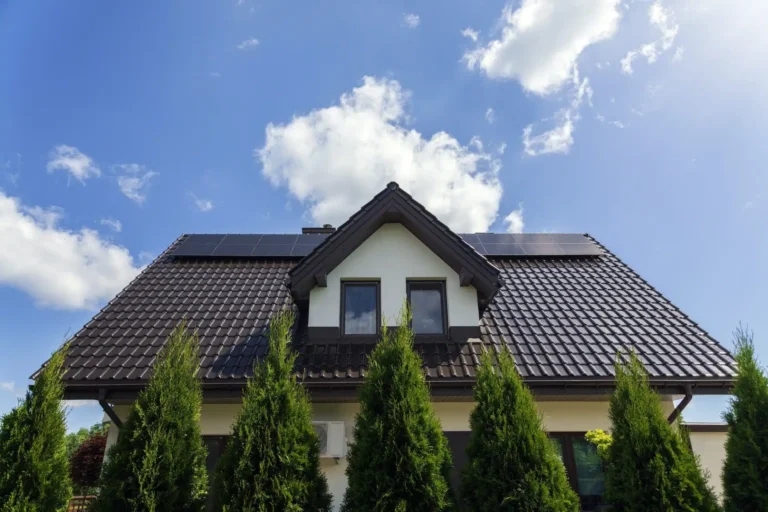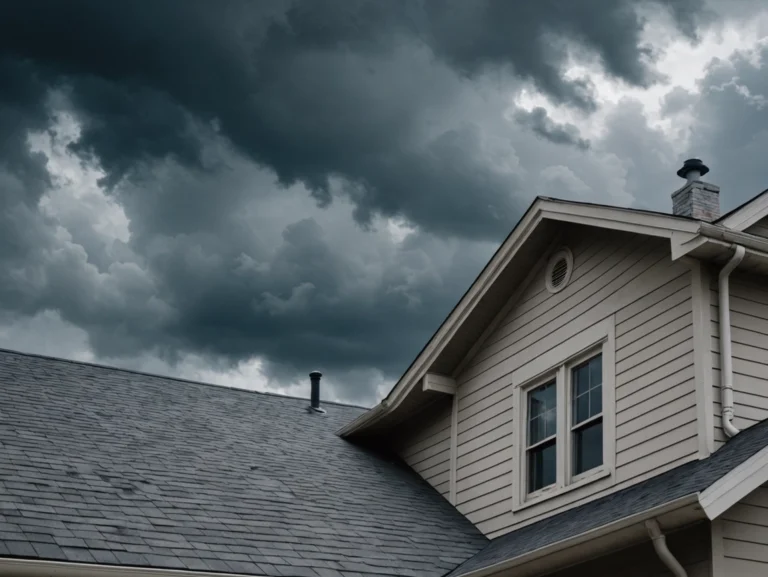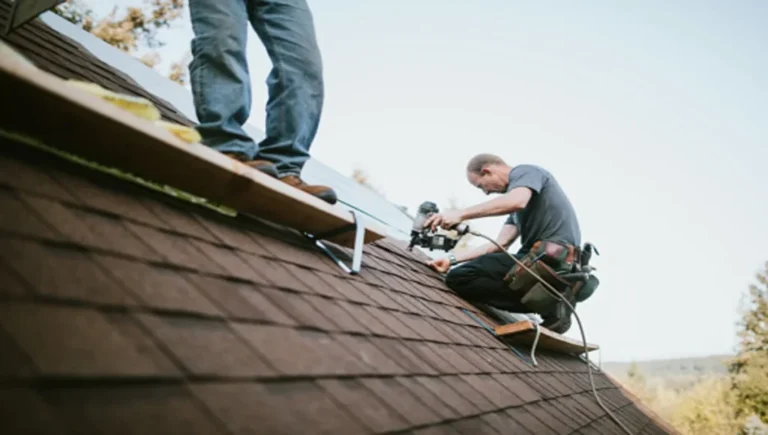Living in Bay St. Louis gives you first-hand experience with unpredictable weather. One moment the skies are clear, the next, heavy rain and winds are upon you. With this in mind, it’s not surprising that your roof could use extra care. If you have leaks or water stains in your house, you have to consider roof waterproofing. In this article, we will discuss the importance of waterproofing your roof and the potential headaches it can save you in the future.
What is Roof Waterproofing?
Before we tackle the details, let’s simplify it. Roof waterproofing is the process of sealing your roof and keeping water out. It is adding a safe covering to your roof. It is, quite literally, your home’s raincoat in a storm. Roof waterproofing is done with the application of a sealant or coating to provide a barrier against rain, moisture, and the humid coastal air we experience here in Bay St. Louis. With time, the protection applied will prevent leaks and stop water from seeping into your attic or living space. Water that collects in these areas of your house can cause damage.
Why Waterproof Your Roof?
You may be asking yourself, “Why is waterproofing so essential?” Consider your roof’s necessary exposure to the elements. It must deal with the summer heat and winter rains. These extremes and other factors cause the roof to sustain considerable damage over time. Consequently, cracks, holes, and other types of deterioration will occur, and your roof will become susceptible to leaks.
Water damage is especially problematic, and I do not mean to be hyperbolic. It begins slowly and incrementally pervades your house, causing the expensive repair issues of dry rot, mold proliferation, and general deterioration. Waterproofing acts as the additional protective layer needed to eliminate the more extensive repair issues and keep your house dry.
The Advantages of Waterproofing Your Roof
Below I will explain some of the primary reasons to consider waterproofing your roof in Bay St. Louis.
Preventing Water Damage
It is unarguable that a principal benefit of waterproofing a roof is the elimination of potential water damage. When a roof is properly sealed, water is unable to infiltrate and create expensive problems, such as mold, insulation deterioration, and rotting wood. This translates to less repair work, and less time and stress for you!
Increasing the Longevity of the Roof
Applying a roof sealant protective layer will prevent damage from severe weather, and extending the roof’s lifetime will prevent the need for frequent and costly replacements. This is certainly a financially sound strategy, as a longer-lasting roof will give you fewer expenses in the future.
Enhancing Energy Efficiency
It may surprise you, but waterproofing will also improve the energy efficiencies of your home. With a sealed roof, there will be less chance of hot and cold air escaping from the house, and your HVAC system will expend less energy in maintaining your home to your desired temperature. This translates to lower energy bills.
Shields from Humidity
Humidity is a part of life while living in Bay St. Louis, especially in summer. Corrosion and deterioration are two consequences of moisture to which every roof is susceptible. Waterproofing techniques ensure that your roof can withstand crippling humidity.
Eliminates Roof Leak
From the earlier discussion, one of the most appreciated features of waterproofing is alleviating leaks. Even minor leaks can cause extensive damage and expensive repairs. Waterproofing your roof is preventative, keeping moisture from seeping in.
When to Waterproof Your Roof?
Knowing the signs, “Does my roof require waterproofing?” Here are some that require prompt attention.
Leak: Water stains on the wall or ceiling are a sign of a leaky roof. Waterproofing can stop the damage from advancing.
Age: A roof that has not been waterproofed and is of considerable age is a candidate. Older roofs are more prone to wear and tear.
After a Storm: If your roof has suffered a heavy storm, check for any possible damage. Waterproofing after a storm can help mitigate damage later.
High Humidity: Homes located in high humidity or heavy consistent rainfall climates are more likely to experience water damage. The more likely a home is to experience problems, water damage risk, and humidity, the more likely a home is to experience problems.
Waterproofing Process
So, what is the waterproofing process actually like? It’s more simple than you might imagine.
Inspection:
A qualified roof contractor inspects your roof, to chart and assess its current state, and prepare a plan to fix and repair damage to weak and/or deteriorated areas in your roof.
Cleaning:
The roof is cleaned before the waterproof coating is applied. This is the most important step in the process, and ensures that the water seal lasts securely.
Coating Application:
The contractor uses a special coating to create a seamless, and waterproof barrier.
Drying:
The sealant drying process is vary and subjective to the adopter, sealant, type, and use, can take, shorten productive hours and estimate and up to a couple of days.
Final Inspection:
The coating has dried, a check is made, ensures that the weak points are detected, and assessed to check for proper sealing.
Conclusion:
A roof waterproofing professional is key to your waterproofing needs. Expert Roofing offers waterproofing giving you peace of mind knowing your home is waterproof. Our professionals have years of experience and will guarantee no other company offers you better services than we will.
Protect your home today. Our number is at the bottom of the page. Your waterproofing and home protection needs are just a call away!
Frequently Asked Questions
1. How often do I waterproof my roof?
Roof and local weather conditions will determine how often you waterproof your roof. General waterproofing is needed in a range of 5 to 10 years. Older roofs can require more frequent waterproofing services.
2. Is the cost of waterproofing my roof high?
The cost to waterproof your roof will depend on roof size and condition. Waterproofing is significantly less than a roof replacement and can save you on highly needed repairs in the future.
Q3: Can I waterproof my roof myself?
Some DIY waterproof coatings are available, but it is best to hire professionals. They have the appropriate experience, as well as the right tools, to properly and safely complete the task.
Q4: How long does roof waterproofing last?
A waterproof coating should last between 5 and10 years, assuming proper application. this will vary according to the quality of materials and the local weather.
Q5: Will waterproofing my roof stop all leaks?
Waterproofing will prevent new leaks but it will not stop old leaks. If there are existing leaks, those will need to be resolved first.




